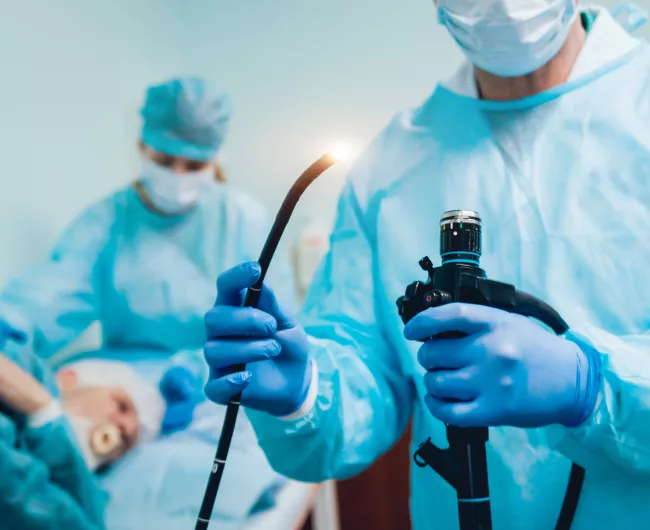Surgery for colorectal cancer
Colorectal surgery involves the removal of the tumor and some of the surrounding tissue.

Surgery as treatment
Surgery is the most common treatment for early-stage colorectal cancer. The type of surgery that is done depends on the stage and location of the cancer.
Colorectal surgery involves the removal of the tumor and some of the surrounding tissue. This is also called a surgical resection. Cancer that can be completely removed with surgery is called resectable.

Your surgeon
Colorectal surgery is usually performed by a general surgeon, a colorectal surgeon, or a surgical oncologist.
Typically, your surgeon will also recommend any other treatment you may need, such as chemotherapy, radiation, immunotherapy, or other therapies.

Types of colorectal surgery
There are different types of surgeries for colorectal cancer, depending on the stage of the cancer and where it is in the colon or rectum.
The most common surgeries are:
- Polypectomy or local excision
- Right colectomy
- Left colectomy
- Sigmoid colectomy
- Left anterior resection (LAR)

Surgery methods
Based on their own experience and preferences, a surgeon will recommend either:
- a minimally invasive surgery such as a laparoscopic or robotic assisted procedure
- an open procedure, which has a larger incision and sometimes a longer recovery time
Up next
More about surgeryTop resources

Christy Williams: Biomarker testing leads to successful treatment
Statistics suggested that Christy’s odds of survival were grim, so she leaned into her faith and kept a positive outlook. She tried to control what she could. And, critically, she received biomarker testing.

EPIC Act to Advance New CRC Therapies Needs Support
The EPIC Act would encourage investment in clinical trials for additional uses of existing drugs.

Michelle Cappel: Biomarker testing extends life
Michelle Cappel owes a lot to colorectal cancer biomarker testing — seven years of life and counting.





